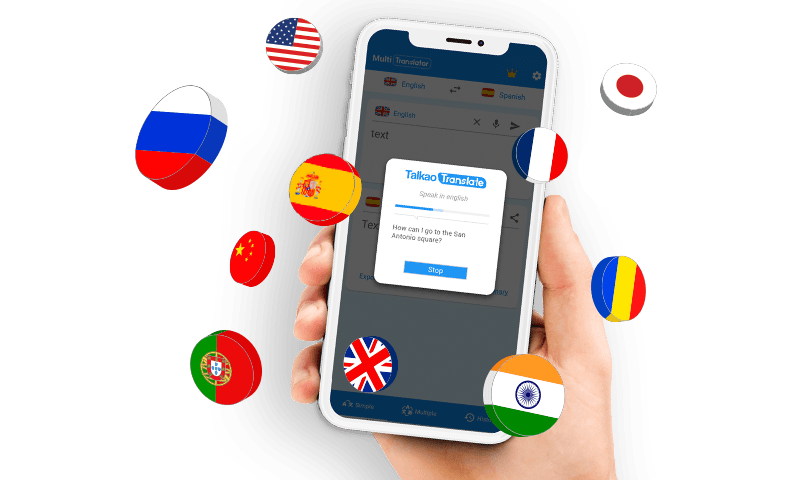
Have you always wanted to start learning a new language, but you’re afraid you won’t be able to? Or maybe you’ve already started and didn’t see the results you expected? Don’t worry, it’s very easy to make mistakes when learning languages… But it’s just as easy to avoid them!
In this article we will explain the most common language learning mistakes that can be made when learning a new language. For each of them, we will show you their importance and give you tips on how to avoid them. Let’s get started!
The importance of learning languages

It may sound like a cliché, but it’s very true: learning foreign languages is very important in today’s world. But it’s not about reaching a level that allows us to compose poems in alexandrine verse (to give an example) but to have a correct conversational level that allows us to interact with native speakers who don’t speak our language.
Today, thanks to AI, there are many real-time translation applications that can help you in your learning, or even save your hair in emergency situations… but on a personal level, nothing equals the freedom and personal satisfaction of having learned the language and being able to speak it without help.
On a professional level, too, language skills can open many doors.
However, learning a new language can seem like an overwhelming task. There are countless manuals, methods, guides and tips on how to do but there is not so much information about the most common language learning mistakes that can be made. That is why we wanted to share with you this list, so you can recognize the main mistakes when learning languages, and you can launch or continue your learning without falling into them.
The 6 most common language learning mistakes
Here is the list of the 6 most common language learning mistakes.
They are not in any particular order, so maybe -for you- the fourth one is more important than the second one, or the fifth one than the first one… Anyway, they are all a hurdle to overcome! So we recommend that you don’t skip any of them, so they’ll all help you in overcoming language anxiety and progress correctly in learning a second language.
Literal translation

We begin this list by talking about the mistake we have all fallen into at some time or another: literal translation. I’m sure you don’t know anyone who has never looked up single words in a dictionary or a translation app, only to look at you with a face like… “Wait, WHAT?!”.
Every language is full of idiomatic expressions and ways of speaking that are impossible to understand with a simple literal translation; that’s why it’s so easy to fall into this mistake without realizing it.
Our advice to avoid this mistake when learning languages is to always pay special attention to the context. Where and how this phrase or that word has been used can completely change its meaning, so it is vital to never lose sight of the context. The new machine translators that integrate AI can help you avoid this mistake, as their analysis of the text takes the context into account and can even provide detailed information on the cultural usage of the expressions.
Fear of making mistakes

Making mistakes is a very good way to learn something: not only do we discover that something doesn’t work, we can also understand why. However, after a certain age, we start to feel ashamed of our mistakes and that can make it difficult for us to learn, especially when it comes to foreign languages. Overcoming language anxiety is key to learn a second language!
In fact, we all have learned our mother language by making mistakes (I myself, it took me a while to correct “it’s broked” – leave a comment with the funniest mistake you made as a child!). Adults are always lenient with children who make these mistakes and help them to correct themselves.
Likewise, natives are much more tolerant of mistakes made by foreigners and we can also help them if the case arises. So my advice here is just to look for an environment in which you feel more comfortable… But jump in the pool anyway!
Remember that when learning a language there are no mistakes, only new learning opportunities! And if you don’t get out of your comfort zone, it will be difficult to progress, so take courage and discover the satisfaction of seeing that you have succeeded!
Not practicing enough

In many cases, the main obstacle that prevents us from making progress in learning a language is not practicing enough. When studying a foreign language from home, we fall into the trap of “I’m tired right now…”, “Maybe tomorrow…”. In other cases, the lack of consistent language practice is caused by shyness, as we have already seen, so here I will assume that shyness is not a problem. Whatever the origin of the lack of continuity in the practice of the language, the fact is that it is a vital point that can stagnate the learning of the language and, with it, demotivate us and make us give up.
Our advice in this case is to establish a daily practice routine. Even if it is not for a long time, if you manage to follow a consistent language practice every day, you will notice the improvement very soon. The second tip is to adapt your practice to make it as comfortable as possible: you can use apps to listen and pronounce correctly, look for an exchange group to practice with native speakers…
Any activity that you find enjoyable and allows you to practice an aspect of the language will help! You just need to put in the time and effort on a consistent basis.
Focusing too much on a single aspect of the language

As we said at the beginning of this article, there are countless methods and applications for learning a language. All of them have the same goal, to make you learn the language, but each one uses its own techniques that differentiate it from the others. In some cases, the chosen method may focus excessively on a single aspect of the language (e.g. grammar, vocabulary, texts…), which can lead to a certain monotony and, therefore, become tiring and demotivating.
In these cases, our advice: in addition to the chosen method, you should look for complements that take you out of that monotony and help you to progress in a more enjoyable way.
If your method focuses too much on grammar and its rules, listen to songs or watch movies in the target language! If your method is solely focused on literary texts, look for a language exchange group!
You get the point there, the trick is to vary the practice to break the monotony.
Non-adapted learning methods

Although this issue is often overlooked, languages are no different from any other type of learning, so pedagogy should not be ignored. There are more visual people, more auditory people, and more “tactile” people, and each of those types will learn better with techniques that focus on those types of memories.
Do you know what type of learning works best for you? Then adapt the techniques in your method to match!
If you haven’t started learning the new language yet, or if you’ve only recently started, we recommend trying different methods. Look for practices that are more visual, others that are more auditory, and even some kinesthetic (this is the name for learning that focuses on the experiences of one’s own body).
Test to see which types of exercises and learning work best for you, and then look to favor practices of that nature. It won’t take you long to notice improvements!
Separating the language from its culture

We have left to the end what, in our opinion, is the worst of the common language learning mistakes we can make: separating a language from the culture that practices it. In English, we see it clearly: the local and regional uses we make of the language reflect the local culture, and the language also acquires peculiarities that reflect that use, that local culture.
Thus, it is unthinkable to dissociate a foreign language from the culture that practices it. Furthermore, learning a language too far away from its culture(s) can limit one’s understanding of the language and thus its effective use.
If you feel that your method does not take enough consideration of the cultural uses of the language, we recommend that you do some research on your own. The Internet is full of useful information, and you can discover cultural groups and associations related to the language you are learning; this will give you the opportunity to practice the language while participating in cultural activities that will enrich you personally and culturally.
Conclusion

It is very easy to fall into one of these six mistakes when learning new languages: haste, fear, lack of self-confidence or overconfidence in your chosen method are all at the root of the problems on this list. But you can avoid them! You just have to be attentive to your own learning and look at it with a critical eye.
Get into a routine of consistent language practice, try different methods and exercises to see what works best for you, throw yourself into frequent practice to help yourself in overcoming language anxiety, and always keep an eye on both what you learn and how you learn it.
With a little confidence in your abilities and a bit of perseverance and rigor, you will be able to communicate in the language of your choice without major difficulties.
What do you think of our list, have you already made any of these mistakes, or do you think we’ve forgotten any other mistakes that were important to you?
Let us know by leaving a comment so that your experience can also be useful to other readers!







Newsletter